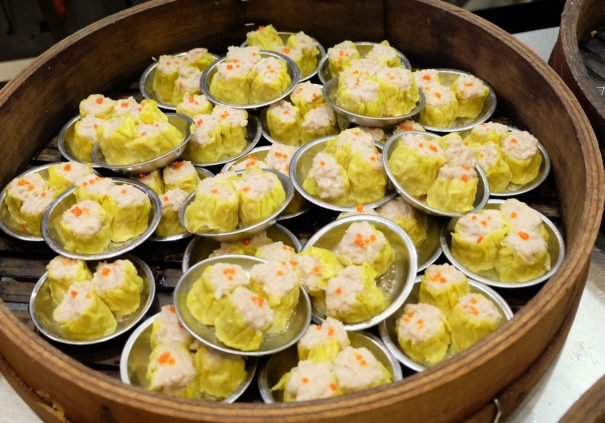
Finding Acceptance and Dim Sum Far From Home

Finding Acceptance and Dim Sum Far From Home
Siu mai in George Town
Dim sum—often associated with Cantonese cuisine and dialect—has won hearts in George Town, the capital of the Malaysian state of Penang, although you’ll more often hear the Hokkien dialect here, which originated in China’s Fujian province.
It is Saturday, almost 9:30 a.m., and Restoran Zim Sum is full of families eating breakfast. Penang resident Awee tells me this restaurant is always crowded thanks to its location on George Town’s main artery, Macalister Road.
I’m visiting Penang from Tangerang city, Indonesia, staying with my parents while they get medical checkups. Many Indonesian nationals come to Penang for the excellent but affordable healthcare. My parents were both born in Indonesia, descended from the many waves of Chinese migration to the country. My father, who at first only knew Hakka dialect, picked up my mother’s dialect—Hokkien—quickly.
Because my parents spoke Hokkien at home, Penang doesn’t feel strange to me. The diners around us at Restoran Zim are all speaking Hokkien, so I consider it an opportunity to blend in with the locals.
Getting your food here is simple: take whatever you want from the dim sum station, but don’t put anything back. You can find the classics like har gow, braised chicken feet, and char siu bao. There are also custard buns, cheong fun with soy sauce, and sweet bread with chicken and ham filling. But siu mai is my favorite. Served three to a small metal plate, this is a steamed, succulent, pork-and-shrimp dumpling with flying-fish roe on top. The yellow wrapping doesn’t feel sticky. It’s not dry, but it’s not watery either. It’s warm food that relaxes me from the first bite. Then there’s also sweet chili sauce and hot Chinese tea from the pot.
After walking back and forth to the dim sum corner to keep tabs on the what’s ready, a waitress in her 60s heads to our table to give us the bill.
“Yìn ní lang?” she asks my aunt—who has lived in Penang since 2009—to find out if we’re Indonesian. I confirm.
“Yìn ní huá qiáo?” She asks us again, this time completely in Mandarin. Chinese-Indonesian?
“Duì,” I say. Yes.
She knows we’re not from Penang, but she doesn’t treat us like foreigners by conversing in English or Malay, which is closely linked to Indonesian. She is friendly and full of laughter.
She sees us as we are, and it’s a welcome feeling. Indonesia’s New Order government brought decades of forced assimilation for the ethnic Chinese there, including a push to adopt Indonesian names. To cut their ties with China—which the government believed was closely linked to Indonesia’s banned Communist Party—Chinese traditions and languages were forbidden in public. It feels more important than ever for Chinese Indonesians to be proud and comfortable in their own skin.